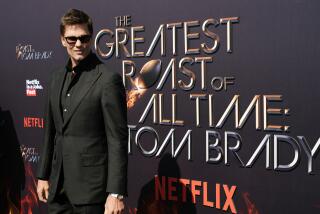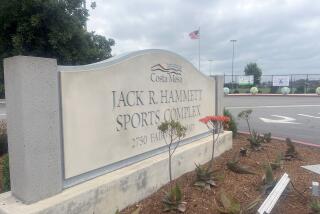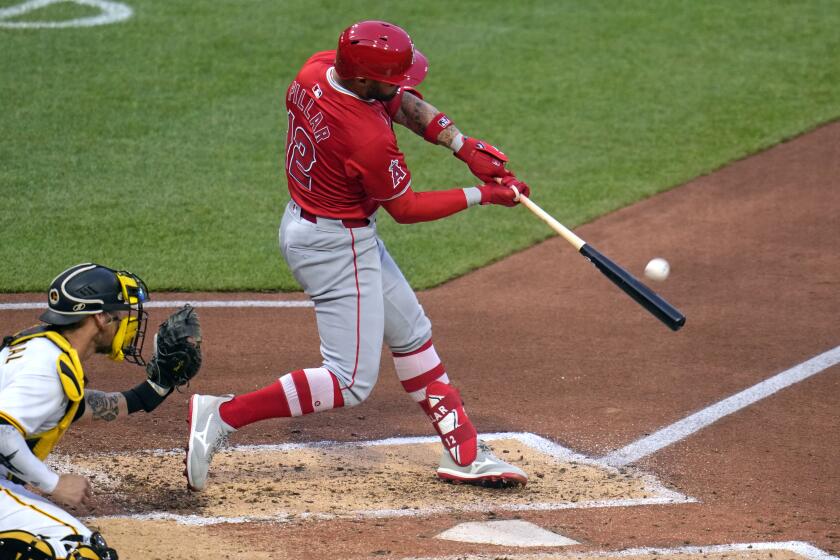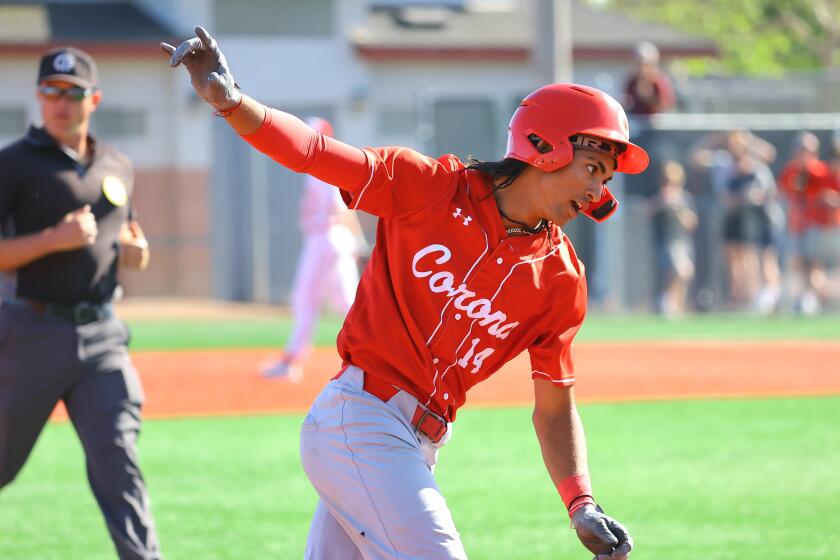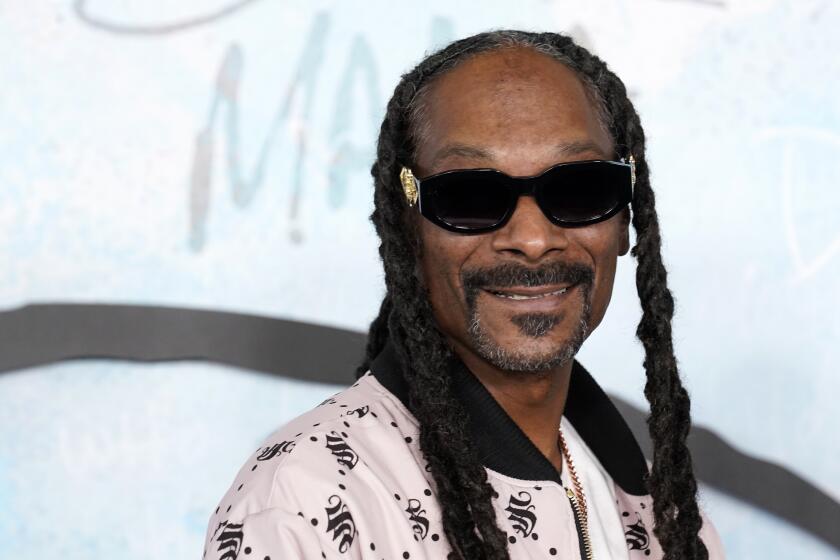Super Bowl Is Blueprint for Disaster
What is the worst thing that can happen to a professional football team?
Trading the only 2,100-yard tailback in history for a fistful of wooden nickels?
Committing six years, at $2.4 million per, to a “franchise quarterback” who stops playing after three?
Firing the head coach and replacing him with the wrong Shula?
Cutting the most popular quarterback in franchise history and replacing him with Todd Philcox?
Not bad, but not bad enough.
No, the worst thing that can happen to a professional football team, as the Washington Redskins are here to remind us today, is winning the Super Bowl.
Look at the Redskins. Twenty-two months removed from Super Bowl glory, they straggle into Anaheim Stadium limp for limp with the Rams--2-7 record, rotten quarterback situation, butt of jokes in their hometown, a flimsy shell of their former selves.
How did it happen?
They won the Super Bowl.
It wasn’t always this way--the Steelers rode the cycle long enough to win four titles in the 1970s--but that was back when the Super Bowl was still a football game and not a seismic cataclysm capable of shaking the land mass, stopping traffic, commandeering the orbital network of television satellites, monopolizing talk radio 24 hours a day and altering the flight patterns of rubber tire- and camera film-plugging aerial blimps.
The human mechanism wasn’t built to handle this kind of sensory overload. Especially human mechanisms programmed to do little more than study the random movement of X’s and O’s and head-butt the mechanism in the wrong-colored shirt next to them.
The Super Bowl grinds up football teams and scatters the ashes, usually within two years on the trophy presentation.
Consider the current condition of these recent NFL champions:
* San Francisco 49ers, 1989: Quarterback--gone. Top running back--gone. Head coach--gray. Present standing--6-3 in mediocre NFC West.
* New York Giants, 1990: Quarterback--gone. Top running back--gone. Head coach--gone. Present standing--second place and fading in NFC East.
* Washington Redskins, 1991: Quarterback--benched. Top running back--non-factor. Head coach--gone. Present standing--tied for worst record in conference.
* Dallas Cowboys, 1992: Quarterback--hurt, feuding with owner. Top running back--nearly lost in summer-long feud with owner. Head coach--feuding with owner. Present standing--haven’t self-destructed yet, but give them time.
The Super Bowl guts football teams, beginning from the top down. Call it the Bill Walsh Syndrome. The logic goes something like this:
A) Winning a Super Bowl is very, very hard and very, very important, therefore . . .
B) Coaching a Super Bowl champion must be the penultimate intellectual achievement, on a par with splitting the atom or beating Fischer in chess, therefore . . .
C) The coach of a Super Bowl champion must be a genius, therefore . . .
D) The coach of two Super Bowl champions must be . . . a legend . And legends, as we all know, bore easily.
So Bill Walsh wins three Super Bowls with the 49ers and quits.
And Joe Gibbs wins three Super Bowls with the Redskins and quits.
And Bill Parcells wins two Super Bowls with the Giants and quits.
Quarterbacks turn over just as quickly. Placed on pedestals so high their noses bleed, how can the fall be anything but ugly?
One day, it’s “I’m going to Disneyland.” The next, it’s “I’m going to shag footballs for the punter.”
The last four Super Bowl winners were quarterbacked by Joe Montana, Jeff Hostetler, Mark Rypien and Troy Aikman.
Today, those same teams are quarterbacked by Steve Young, Phil Simms, Rich Gannon and Bernie Kosar.
John Elway and Jim Kelly are the longest-running standing quarterbacks in the business. There’s a reason for their resiliency. Combined, Elway and Kelly are 0-6 in Super Bowls. They haven’t been canonized, so they can’t be burned at the stake.
And if a coach’s defection or a quarterback’s regression doesn’t sink a champion, the NFL constitution certainly will. The NFL actively conspires against its best teams through an elaborate set of bylaws and restrictions designed, one day, to achieve Rozellian utopia: 28 teams with 8-8 records.
Win a Super Bowl, and you get the worst pick in the draft.
Win a Super Bowl, and you get the most difficult schedule in your division.
Win a Super Bowl, and you now wait for the salary cap to strafe you. Players who win championships tend to ask for raises, but what can a team do with its back pressed against a salary ceiling? So players look for green in different pastures, which explains why Redskin ring-wearers Wilber Marshall, Gary Clark, Fred Stokes and Jumpy Geathers now play for the Oilers, Cardinals, Rams and Falcons.
All in all, it can be a terrible thing, winning a Super Bowl. The team gets an oversized hood ornament and the right to raise season-ticket prices, the players get diamond-studded rings that must be stashed in hotel security boxes--always a hassle--and then what?
From there, it’s just the inevitable fall from grace, a rash of “Whatever happened to?” newspaper stories and the painful, arduous task of having to rebuild all over again.
Good thing the Rams have never tried it.
More to Read
Get our high school sports newsletter
Prep Rally is devoted to the SoCal high school sports experience, bringing you scores, stories and a behind-the-scenes look at what makes prep sports so popular.
You may occasionally receive promotional content from the Los Angeles Times.
